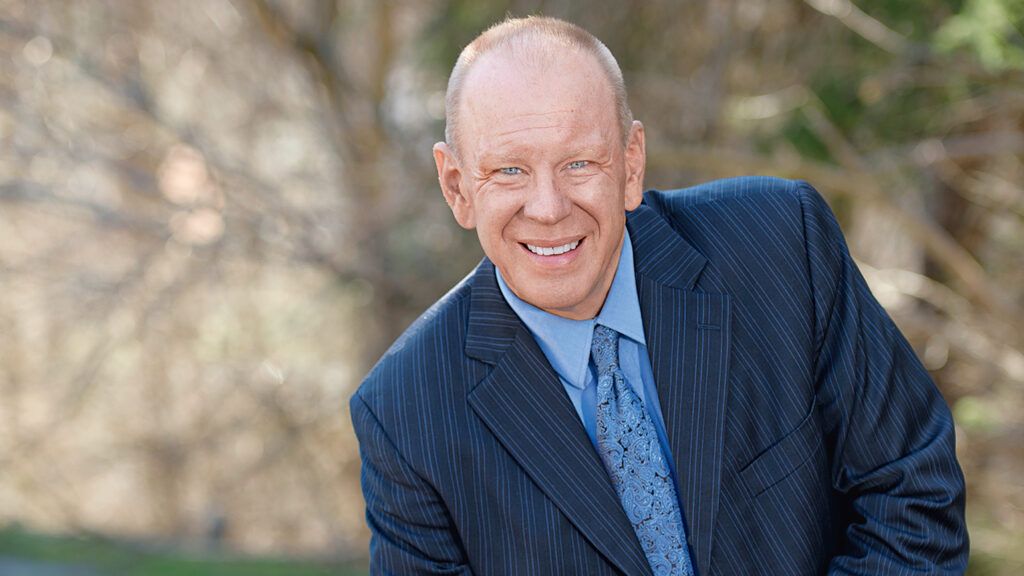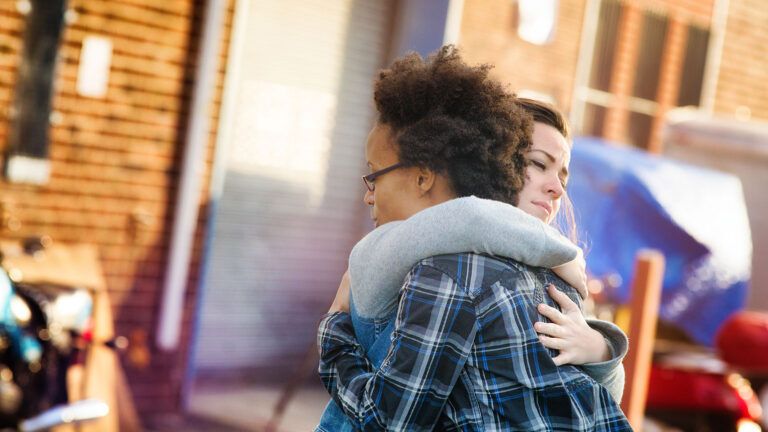They’re going to find out.
I traveled a lot for my job as CEO of Caron Treatment Centers, one of the largest and most respected addiction treatment programs in the country. Usually alone, which was how I’d managed to keep my secret for so long.
They’re going to find out.
This time, Caron had a full week of events scheduled in Florida. Strategic planning sessions, meetings with potential donors, fund-raisers… Almost every hour of every day, all eyes would be on me.
They’re going to find out.
There was no way I could keep up the façade the whole time. Or was there? My wife, Frances, had mentioned that our daughter Teresa would be on spring break from college that same week. So I invited Teresa to join me. With her around, I wouldn’t slip up. I’d stay at the top of my game.
BROWSE OUR SELECTION OF BOOKS ABOUT PERSONAL GROWTH
Maybe I put so much pressure on myself to achieve at the highest level because I’d come from such humble beginnings. I’d grown up on a pig farm in Missouri, the oldest of five sons. Baling hay, feeding slop to our pigs, hitting the books, going to church—that’s how I’d spent my childhood. My family and faith had taught me the value of hard work and service. I’d been the first in my family to graduate from college, and my father had encouraged me to “reach for the moon.” I’d set an ambitious goal for myself: becoming CEO of a nonprofit organization before the age of 40.
I was fortunate that my background in business and fund-raising led me to a development executive position at Hazelden, another well respected addiction treatment center. Caron hired me in 1995 as its president and CEO. The small-town farm boy had made it big.
Caron was struggling financially when I took over, and I was determined to get us back on track. By 2008, total revenues had quintupled to $60 million and fund-raising numbers were at an all-time high. The board of directors was impressed, our employees were happy and I was respected in the addiction treatment field.
But success had come at a cost. The higher I rose, the harder I worked. And the more I turned to alcohol to manage my stress.
I’d taken my first drink during my freshman year of college. I liked the taste, the buzz. I liked how it made me feel. I wasn’t the insecure kid fresh off the pig farm anymore. I could do anything!
Oddly, working in addiction treatment made it easy for me to hide my drinking. In our field, alcohol isn’t served at business functions, so I didn’t have to worry that I’d embarrass myself in front of colleagues. But I looked forward to business trips. They were my time to drink.
The same discipline that served me so well in my career helped me cover up my drinking. My life became completely compartmentalized. If I drank around Frances or our children, it was minimal and in a social context. I rarely drank in our community. Only when I was away on business did the drinking escalate into abuse.
Even then, I kept things under control. For years, I made deals with myself and stuck to them. I’ll drink on one night of this three-day business trip and one night only. During the early 2000s, however, something snapped. Work was going well; I was happily married and an involved father. But for some reason, I couldn’t keep my deals with myself anymore.
On business trips, I would get drunk every single night. Then I would find myself planning extra trips specifically so I could drink.
I would put in a 14-hour day and unwind at the hotel bar afterward. I work so hard, I’d tell myself. I deserve this. Beer was my drink of choice. I got to the point where I could throw back 12 in one night, easy. Alcohol made me feel funnier. Braver. Smarter. I’m a social person, and I loved interacting with my fellow bar patrons.
The next morning, I’d wake up queasy. As much from guilt as from my hangover.
To appease my conscience, I worked even harder. I threw myself into being a super CEO, super husband, super dad. I exceeded our fund-raising goals. Coached Little League. Built a deck on our house. I thought that drinking actually made me a better leader, husband and father because it pushed me to overachieve. That’s how I rationalized it anyway.
On the outside, my life looked great. On the inside, I was rotting away. My secret ate at my soul. That is what secrets—and untreated addictions—do. From my work, I knew exactly what was happening to me: the inevitable progression of alcoholism. I knew I needed help, but where could I go? Word would get out that the CEO of Caron was in rehab. Then our organization and the addiction treatment field and, even worse, the recovery of thousands of people would be called into question. I prayed about it constantly. Even God didn’t seem to have a solution.
By the time I went on that weeklong work trip to Florida, I was acting from a place of fear. Fear of being found out. Of losing everything I cared about. Which was why I’d brought my daughter Teresa along with me.
That worked the first night. Teresa and I went to dinner and a movie. The second night, my nerves were frayed. Teresa decided to turn in early after dinner. “I’m going to meet a friend,” I told her. “I’ll be back later. Don’t wait up for me.”
My friend was one of the only people who knew what I did to unwind. And even he didn’t know the extent of it. We met at a bar halfway between our hotels. I sat down, adrenaline pulsing through me, and ordered a drink. As soon as that cold beer slid down my throat, the tension of the day ebbed. Five or six beers later, I couldn’t remember why I’d been so stressed in the first place. By then, my friend had left. I kept drinking.
Later that night, I got behind the wheel of my rental car and headed back to my hotel.
I’d almost made it when—bam! The car stopped. I stumbled out and onto the freeway exit ramp. I stared at the guardrail I’d hit. Everything felt fuzzy and far away.
Blaring sirens. Flashing lights. A police officer got out of his patrol car and walked up. “Sir, have you been drinking?” he asked.
This is it, I thought. The jig is up.
I struggled through the field sobriety tests. The officer cuffed me. I failed a Breathalyzer test. I was taken to the county jail, booked for DUI and tossed in a cell. There, behind bars, the oddest feeling came over me. Relief. Almost cathartic relief. I didn’t have to lie anymore. My secret was out.
I used my phone call to talk to my wife, back home in Pennsylvania. “Frances, the most amazing thing happened,” I said, feeling almost giddy. “I’m in jail.”
“You’re…what?!”
“I was arrested for driving while intoxicated.”
“But you hardly ever drink….”
“This is actually a good thing.”
“I fail to see how this is good news,” she said, distraught. Frances said she’d talk to Teresa and ended the call.
I could no longer minimize or deny my addiction. It was real and it was public—with local media even reporting on my arrest. I made the immediate decision to seek treatment. I didn’t go to Caron because it’s standard protocol not to treat your own employees. I spent six weeks at a residential treatment center in the desert. “Don’t go easy on me,” I told my counselor there. “I’ll do whatever it takes to hold on to my job and my family.”
Just one week in, the chairman of the board of Caron informed me that I was being put on medical leave and that I might not get my job back. My family was understandably also very upset, and I knew it was going to take a lot to regain their trust.
“Now you can understand the definition of being powerless,” my counselor said. “The only thing you have power over is your willingness to recover.”
It didn’t sink in. I kept obsessing about what to do to save my job and my marriage. That’s what occupied my mind on my daily jogs in rehab. One day I was out jogging when I took in the stark beauty of the desert around me, the mountains looming beyond. I felt very small.
I was powerless. Powerless to keep my job. Powerless to save my marriage. Powerless to control everyone and everything around me. If I wanted to live and be sober, I would have to let go of my own will and accept the will of my higher power. There in the stillness of the desert, I asked, “God, let me be a vessel of your good will, wherever that goes.”
Recovery remained my priority when I went home. I found a sponsor, went to 12-step meetings regularly. And I began making amends to everyone in my life.
I’d thought my children hadn’t been hurt since I never drank around them, that coaching their sports teams and being involved in their activities meant I was a good dad. “You were there, but we didn’t want you to be,” they said. “You were always angry.”
I needed to hear how my behavior had affected them. Getting honest about my addiction has allowed me to build honest, healthy relationships with my children and my wife.
On my sixtieth birthday, we invited friends over for a barbecue and to watch the Major League Baseball All-Star Game. At one point, my wife turned to me and said, “Who would have thought such a horrible disease would make our relationship so great?”
That very public DUI in Florida nine years ago could have ended my career and my marriage, but getting found out turned out to be the best thing for me, something God knew I needed. Through extensive treatment, support and a commitment to recovery, I was blessed with the opportunity to become a better man, one day at a time. A more effective, more understanding leader at Caron. A more open, loving and emotionally present husband and father. Instead of living in fear, I am living in dignity and grace, and I am so grateful.
For more inspiring stories, subscribe to Guideposts magazine.




